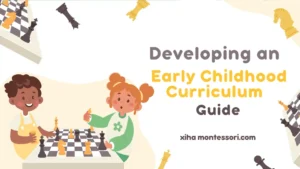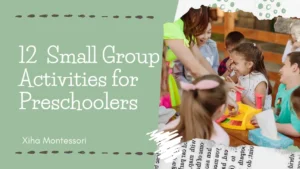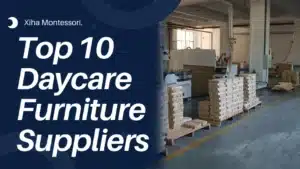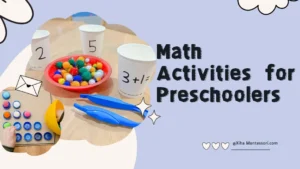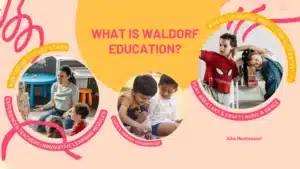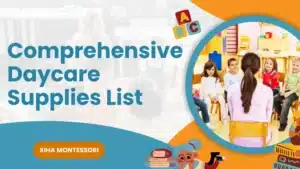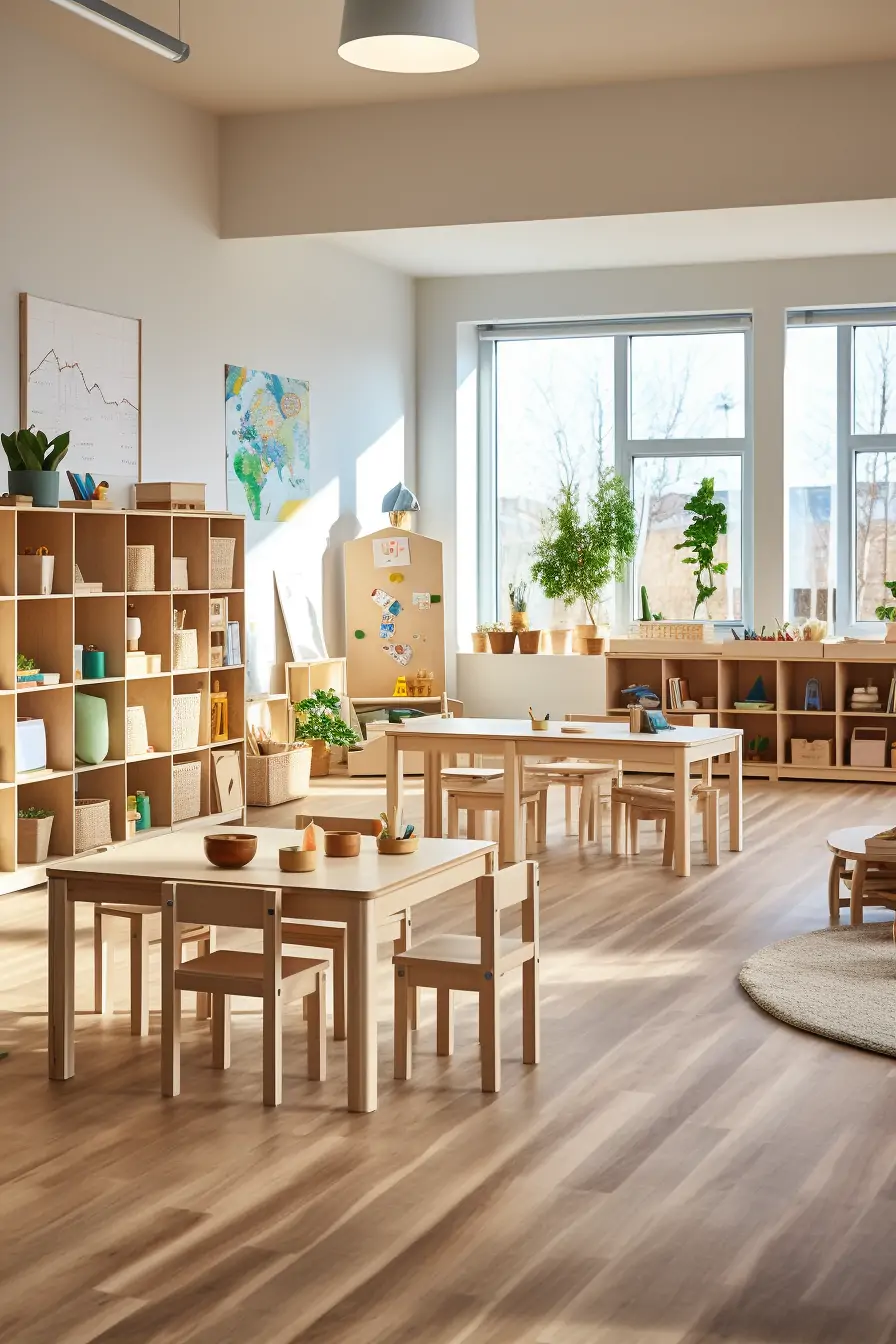In my role as CEO of Xiha Montessori, I’ve often been asked about the differences between Montessori and traditional education. As someone deeply immersed in this field, I have a keen understanding of these distinctions.
Montessori education, a method developed by Dr. Maria Montessori, is renowned for its unique approach to learning. It emphasizes individual pace, hands-on activities, and a prepared environment that nurtures natural exploration. Unlike traditional education, which often focuses on structured curricula and teacher-led instruction, Montessori education fosters self-directed learning and independence. This approach encourages children to pursue activities that interest them, aiding their development in a way that conventional education systems may not fully support.
As we delve deeper into the nuances of Montessori education, it becomes clear that it is not just an alternative teaching method but a comprehensive approach to child development.

What Defines the Montessori Method?
The core philosophy of Montessori education is centered around respect for the child. This respect is manifested in several key aspects:
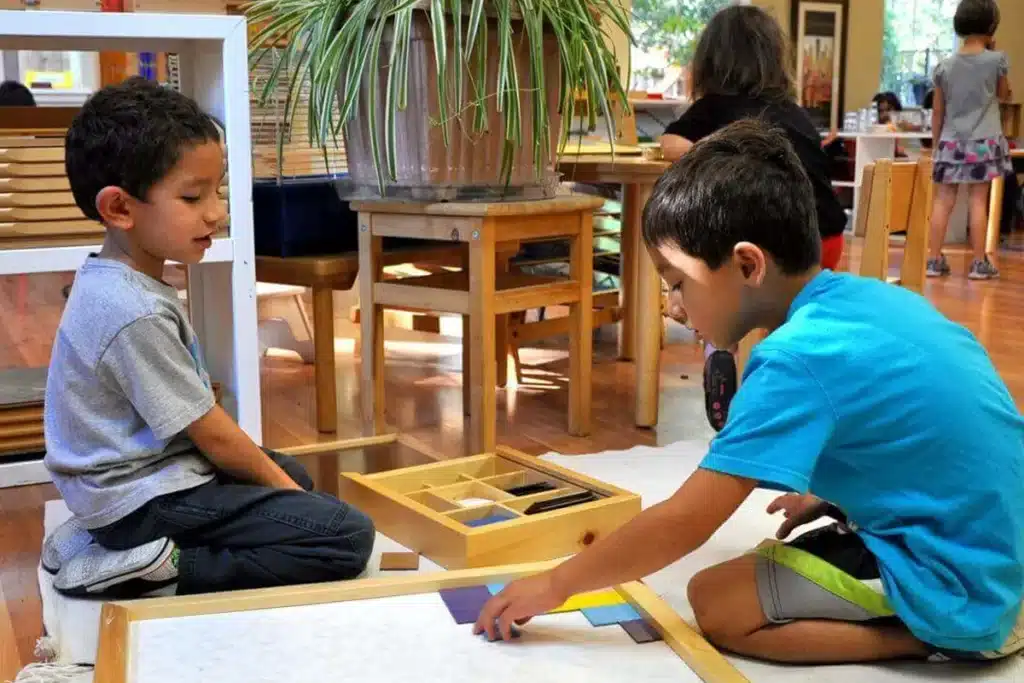
Individualized Learning
Montessori education is tailored to each child’s specific needs and learning pace. This individualized approach allows children to explore their interests and learn through discovery, which is often lacking in traditional settings where the pace and content are standardized.
Role of the Educator
Montessori teachers act as guides or facilitators rather than traditional instructors. They observe and support children in their learning journey, rather than directing it. This contrasts with the teacher-centered approach in conventional education, where the teacher is the primary source of knowledge and instruction.
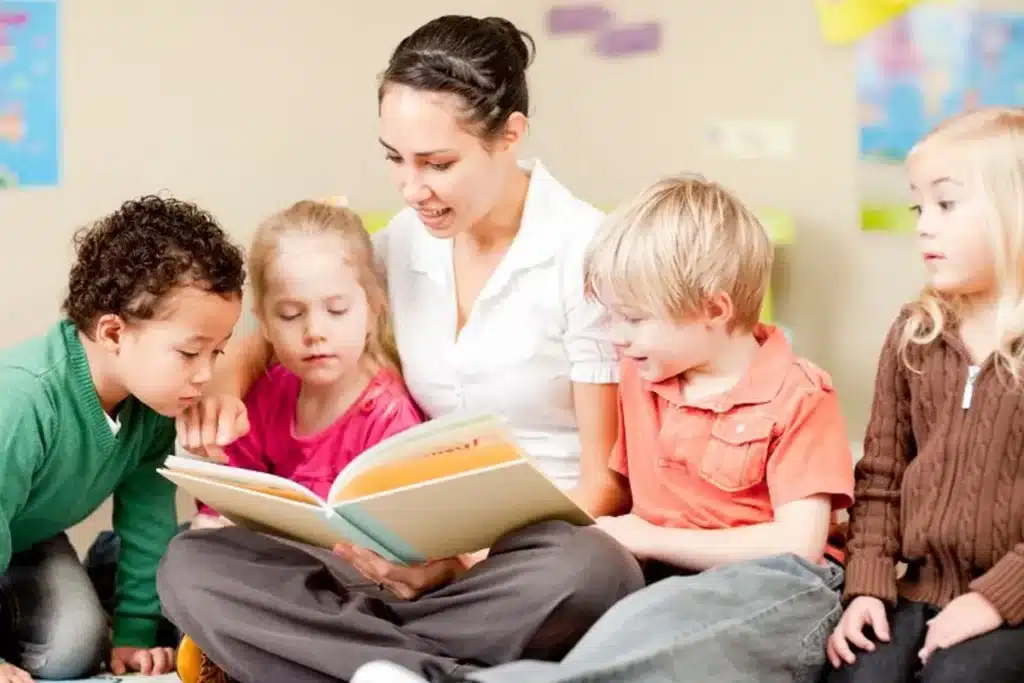
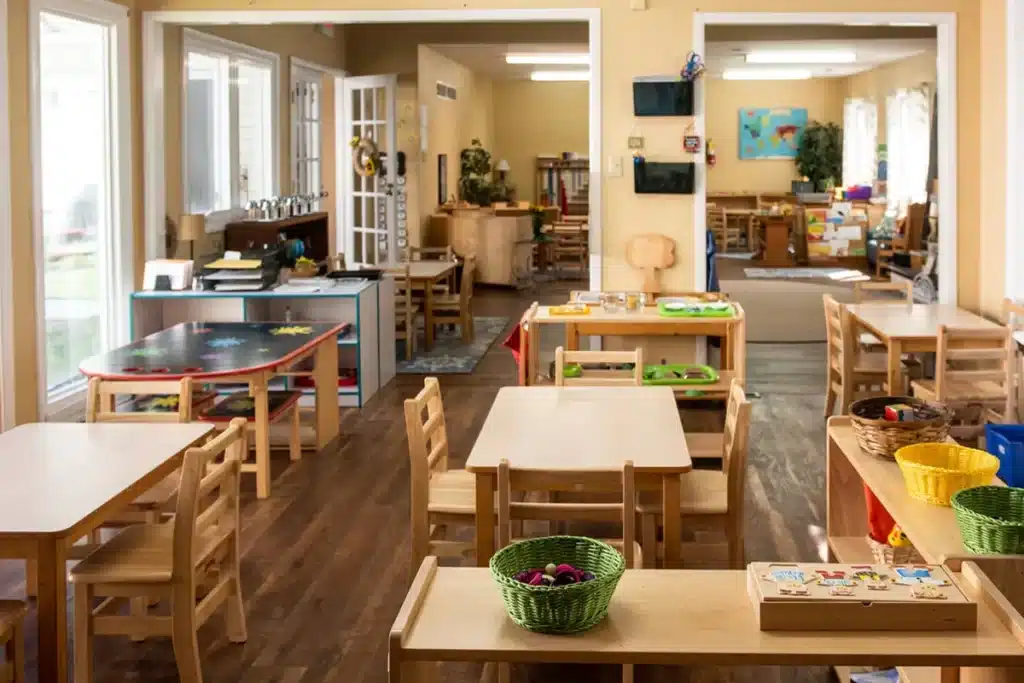
Prepared Environment
Montessori classrooms are carefully designed to encourage independence and exploration. Every material and piece of furniture is chosen to support the developmental needs of children, a stark contrast to traditional classrooms, which often prioritize efficiency and order over individual exploration.
Montessori Materials
Unique, specialized materials are a hallmark of Montessori education. These materials are designed to be self-correcting and to encourage exploration and learning through the senses. This contrasts with the more generic textbooks and materials found in traditional classrooms.
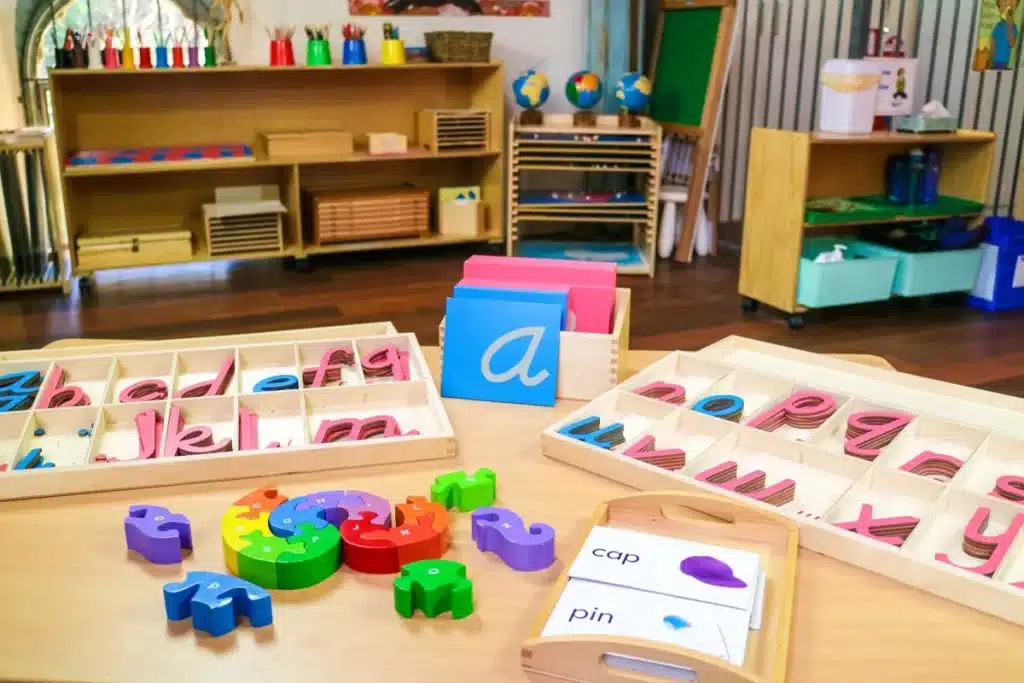

Mixed Age Groups
Montessori classrooms typically include children of various ages, fostering a community where older children help teach the younger ones. This approach differs from the age-segregated classrooms of traditional education, which can limit peer-to-peer learning opportunities.
Emphasis on Social and Emotional Development
Montessori education places a strong emphasis on the social and emotional development of children. It recognizes that learning is not just an intellectual exercise but also involves developing empathy, self-regulation, and social skills.
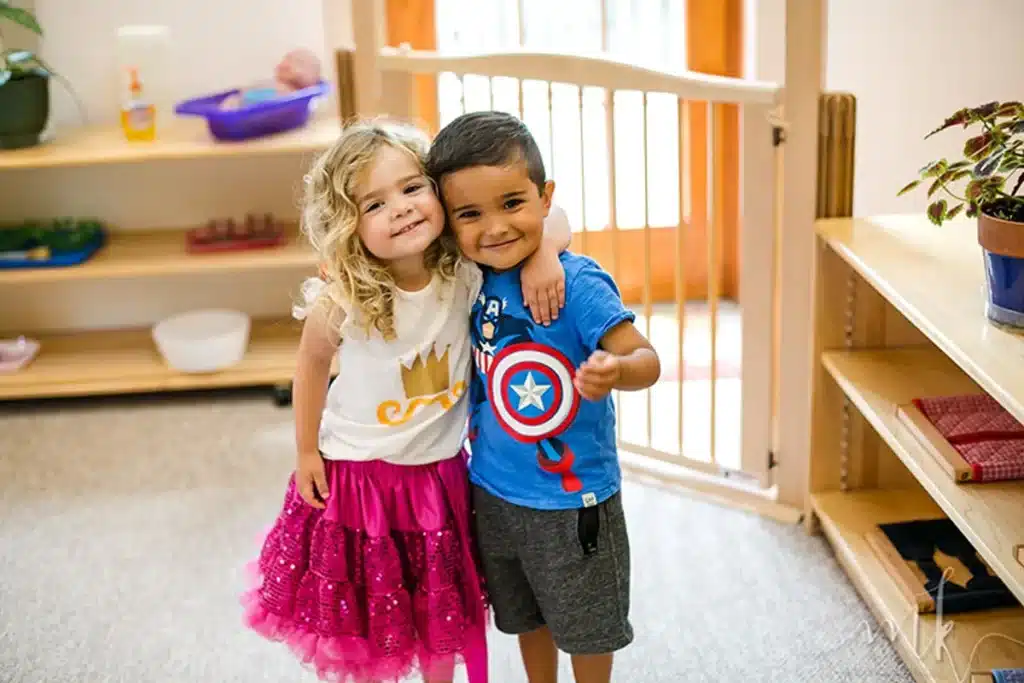
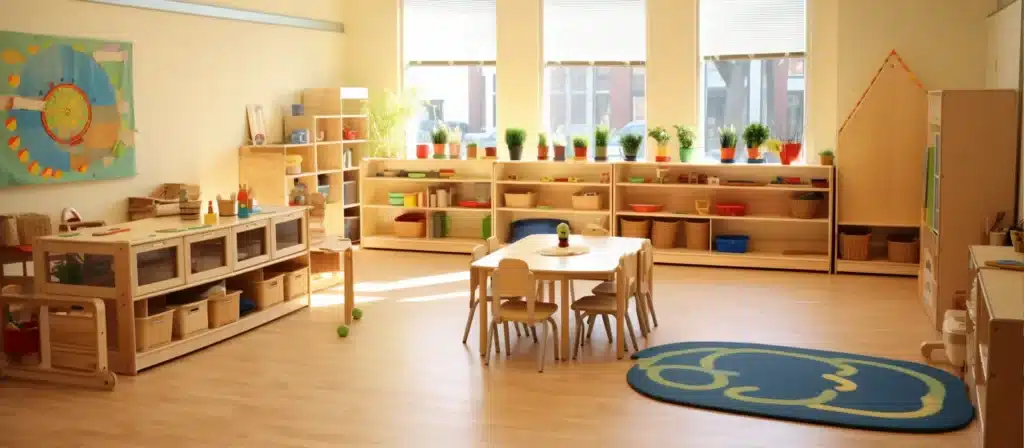
Comparing Classroom Environments
The physical layout and design of Montessori classrooms are significantly different from traditional classrooms:
- Space for Movement: Montessori classrooms are designed to allow free movement and exploration. Children are not confined to desks but can move around, choose their work, and collaborate with others. This differs from traditional classrooms, where children are often required to remain seated at their desks for extended periods.
- Nature and Aesthetics: Montessori classrooms often incorporate natural materials and are aesthetically pleasing. This environment is created to respect the child and provide a calm, inviting space for learning, contrasting with the more utilitarian design of many traditional classrooms.
- Accessibility of Materials: In Montessori classrooms, learning materials are within easy reach of children, allowing them to choose their activities independently. This contrasts with traditional classrooms, where materials are often controlled and distributed by the teacher.
- Flexibility in Furniture and Layout: The furniture in Montessori classrooms is specifically designed to be child-sized and easily rearranged to accommodate different activities. This flexibility is often lacking in traditional classrooms, where furniture is uniform and fixed.
The Role of the Montessori Teacher
Montessori teachers play a significantly different role compared to their counterparts in traditional education.
- Guide, Not Instructor: In Montessori education, teachers act as guides or facilitators, helping children to explore and learn independently. This contrasts with the more directive role of teachers in traditional education.
- Observer and Individual Supporter: Montessori teachers spend a lot of time observing children to understand their needs and interests. This individualized attention is less common in traditional settings, where the focus is often on managing the class as a whole.
- Continuous Professional Development: Montessori teachers are trained specifically in the Montessori method and philosophy and are required to engage in ongoing professional development. This specialized training is distinct from the general teaching credentials required in traditional education.
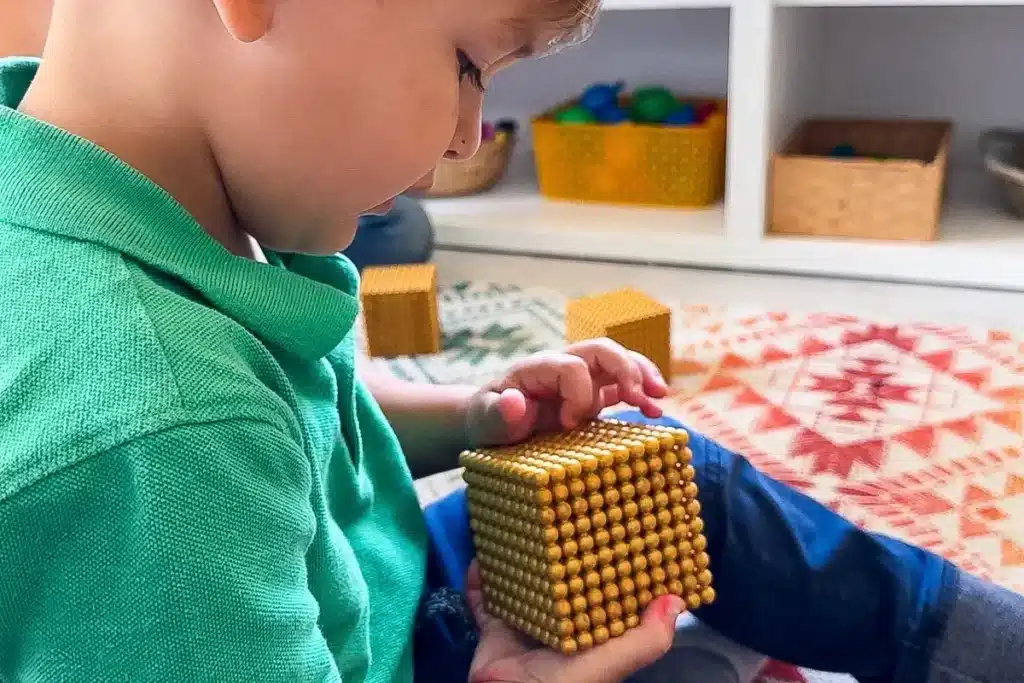
Montessori Learning Materials
The learning materials in Montessori classrooms are unique and serve a specific purpose in the child’s development.
Self-correcting materials
In Montessori education,Many Montessori materials are designed to be self-correcting, allowing children to learn independently from their mistakes, a feature not commonly found in traditional classroom materials.
Sensory-Based Learning
Montessori materials often involve multiple senses. Traditional educational materials tend to focus more on visual and auditory learning.
Real-Life Skill Development
Montessori materials often help children learn practical life skills such as pouring, tying, and cutting. This focus on real-life skills is less evident in traditional educational materials
Montessori Method vs. Traditional Method: Learning Outcomes
The outcomes of Montessori education can be different from those of traditional education.
- Independent Learning Skills: Montessori students often develop strong independent learning skills, a direct result of the self-directed nature of the Montessori classroom.
- Social and Emotional Intelligence: The mixed age groups and community-oriented environment in Montessori schools help students develop advanced social and emotional intelligence.
- Creativity and Problem Solving: The emphasis on exploration and discovery in Montessori education fosters creativity and problem-solving abilities.
Assessing Progress in Montessori Education
Assessment in Montessori education is radically different from traditional methods.
- Observational and Qualitative Assessments: Montessori educators use observational and qualitative assessments to track student progress, rather than relying solely on tests and grades.
- Focus on Individual Progress: Assessments in Montessori education are individualized, focusing on each child’s progress and development, rather than comparing them to a standardized benchmark.
- Parent-Teacher Conferences: Regular parent-teacher conferences are a key component of assessment in Montessori education, providing a comprehensive view of the child’s development.
Conclusion
Montessori education offers a distinctive and effective alternative to traditional educational methods. Its focus on the individual child, respect for natural development, and holistic approach prepare children for a lifetime of learning and growth. As we continue to explore and appreciate the benefits of Montessori education, it becomes clear that this method is not just an alternative form of education but a profound contribution to the field.


